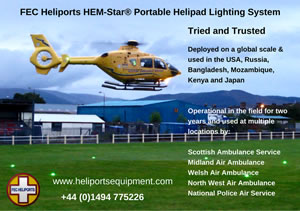ADi News2016-06-08 05:24:03
Leidos to Provide Intelligence, Surveillance and Reconnaissance Research and Development to the Army Research Laboratory Sensors Electron Devices Directorate
Leidos contracted by the U.S. Army to provide Intelligence, Surveillance and Reconnaissance Research and Development - Analytic Software to the Army Research Laboratory (ARL) Sensors Electron Devices Directorate (SEDD).
The multiple-award indefinite-delivery/indefinite-quantity cost-plus fixed-fee contract has a one-year base period of performance, four one-year options, and a total contract value of approximately $250 million for all awardees, if all options are exercised. Leidos is one of four contractors eligible to compete for task orders under the contract.
SEDD is the principal Army organization for basic and applied research in sensors, electron devices, and power and energy to ensure U.S. military superiority. SEDD conducts innovative research in the areas of sensors, electron devices and power and energy to provide the Army with affordable enabling technology in advanced electro-optical technologies; flexible displays; advanced RF technologies; electronic materials and devices; autonomous sensing; micro autonomous technologies; hybrid electric vehicle, platform, and pulse power; directed energy; and micro, soldier, and portable power.
Under the contract, Leidos will develop a suite of analytic software and tools to encompass the integration of large sets of data and the redeployment of new and existing sensors in an effort to create an ecosystem which allows the effective and efficient gathering and use of information. These technologies form a holistic approach to locating terrorist networks and insurgent activities through Persistent Surveillance (PS), Open Source Intelligence, identification and localization of Weapons of Mass Destruction (WMD) systems, and Improvised Explosive Devices (IED).
Technologies include sensors, cloud computing, multi-source data fusion, munitions detection systems, signal processing tools and concepts, Processing, Exploitation, and Dissemination (PED) tool automation capabilities, and Counter-IED (CIED) technologies and systems in asymmetric, counter-terrorism, and counter-insurgency warfare scenarios. These technologies will convert sensor and intelligence data to actionable intelligence and enable the local commander to make informed real-time decisions based on all available intelligence.
Leidos contracted by the U.S. Army to provide Intelligence, Surveillance and Reconnaissance Research and Development - Analytic Software to the Army Research Laboratory (ARL) Sensors Electron Devices Directorate (SEDD).
The multiple-award indefinite-delivery/indefinite-quantity cost-plus fixed-fee contract has a one-year base period of performance, four one-year options, and a total contract value of approximately $250 million for all awardees, if all options are exercised. Leidos is one of four contractors eligible to compete for task orders under the contract.
SEDD is the principal Army organization for basic and applied research in sensors, electron devices, and power and energy to ensure U.S. military superiority. SEDD conducts innovative research in the areas of sensors, electron devices and power and energy to provide the Army with affordable enabling technology in advanced electro-optical technologies; flexible displays; advanced RF technologies; electronic materials and devices; autonomous sensing; micro autonomous technologies; hybrid electric vehicle, platform, and pulse power; directed energy; and micro, soldier, and portable power.
Under the contract, Leidos will develop a suite of analytic software and tools to encompass the integration of large sets of data and the redeployment of new and existing sensors in an effort to create an ecosystem which allows the effective and efficient gathering and use of information. These technologies form a holistic approach to locating terrorist networks and insurgent activities through Persistent Surveillance (PS), Open Source Intelligence, identification and localization of Weapons of Mass Destruction (WMD) systems, and Improvised Explosive Devices (IED).
Technologies include sensors, cloud computing, multi-source data fusion, munitions detection systems, signal processing tools and concepts, Processing, Exploitation, and Dissemination (PED) tool automation capabilities, and Counter-IED (CIED) technologies and systems in asymmetric, counter-terrorism, and counter-insurgency warfare scenarios. These technologies will convert sensor and intelligence data to actionable intelligence and enable the local commander to make informed real-time decisions based on all available intelligence.
For more information contact:
